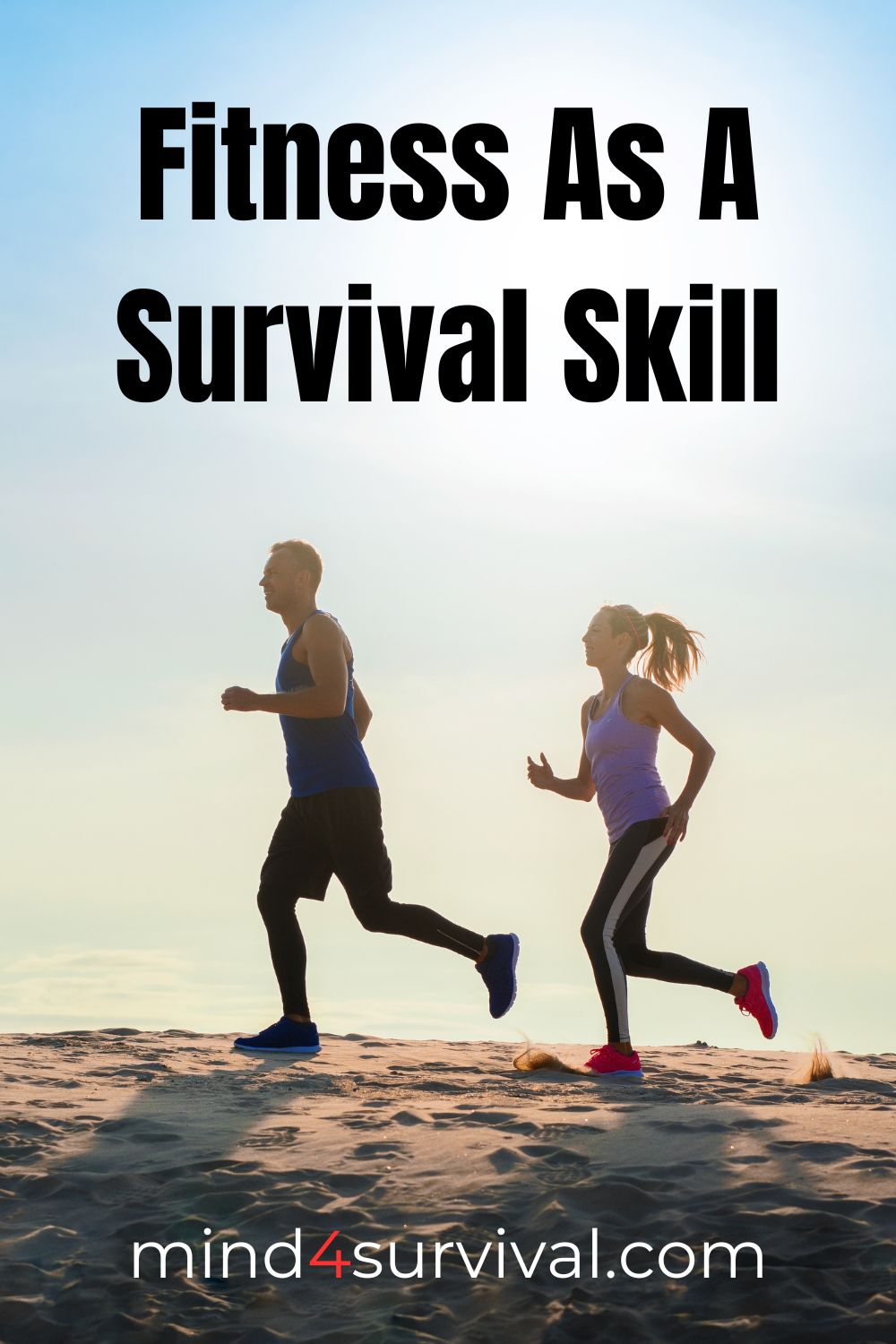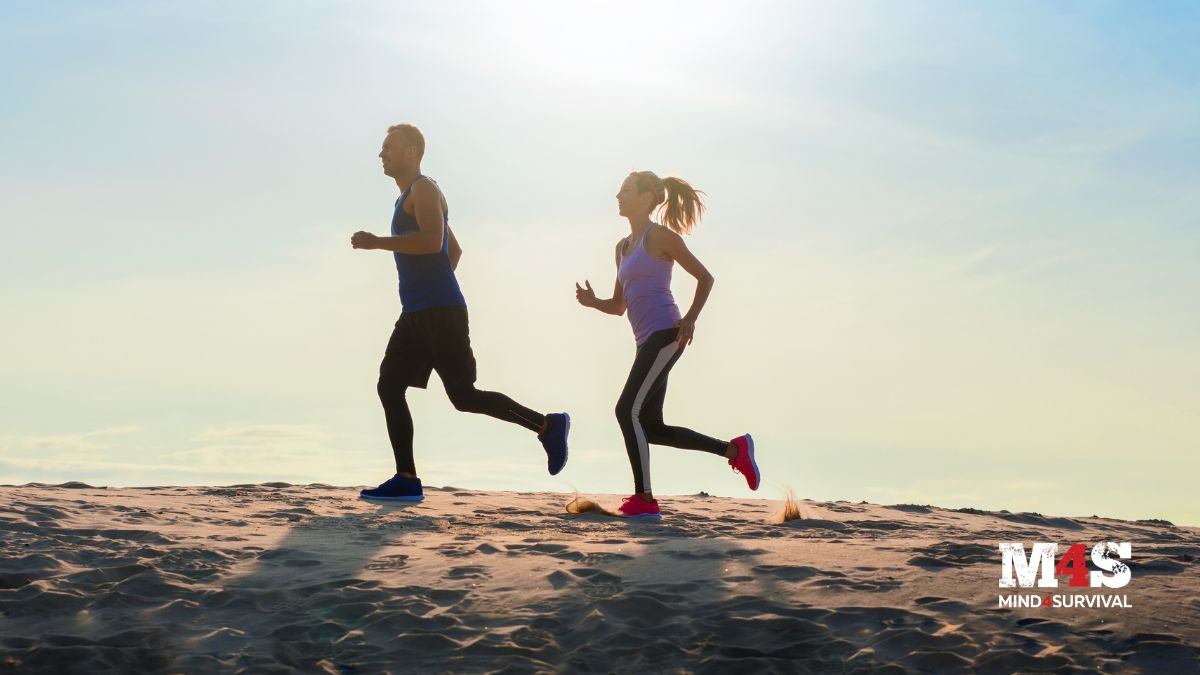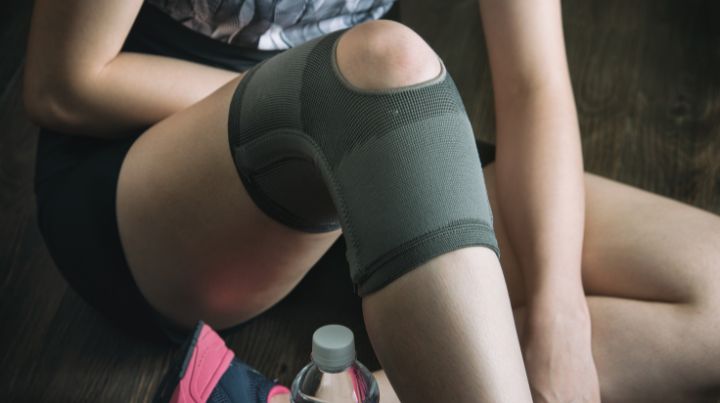When most of us think of being prepared or improving our situation, we think of skills and gear. Both of which usually cost money. One of the best ways to be prepared to survive a traumatic or isolating event is to be physically fit.
Improving our survival fitness capabilities doesn’t have to cost anything. We can work on our fitness by increasing our activity level and reducing our intake of excess calories, sugars, and processed foods. There are plenty of programs out there that use distance, body weight exercises, and circuit training to improve our fitness. Just being active around the house will increase our level. Turn off the TV, get outside, and move. Everyone knows we should be always working to get in better shape. Sometimes it just takes a lot of discipline and prioritization. If we look at it from a “fitness for survival” perspective, being “in shape” is different from being an athlete, sort of. Let’s look at the benefits of being physically capable and being involved in a traumatic or isolating incident.
Traveling by Foot
You should be able to run or walk long distances. You should be able to walk out of the trouble you found yourself in. This might be in extreme cold or heat, uphill or over rough terrain, or even while dehydrated or injured. The longer you are capable of walking in the best conditions, the longer you will be able to walk when the circumstances are not in your favor. Imagine getting lost or getting stranded when your vehicle can no longer move. There are plenty of survival stories of people having to walk in the toughest of conditions for days to self-rescue or reach help.
Lifting and Carrying
You should be able to carry weight on your person (usually on your back), and that weight shouldn’t completely gas you on your trip or adventure. This means that when you carry the weight of the items you need during your trip, you should still be able to carry more weight and have endurance left if you need to go further than your planned outing. You also need to be capable of carrying or dragging one of your travel mates out of harm’s way. That might be just out of a burning house, but it might be off a trail to where you can reach help or be located and rescued.
With carrying weight, you can add lifting things. You will need to be able to lift things off of yourself or trapped people. There may be times you’ll want to lift items off the ground and onto something else. You may need to climb or lift yourself up and over things to self-rescue or get away. Growing up in the Pacific Northwest, I can remember having to lift or move heavy rocks and trees to clear the roads sometimes after a storm so we could get into town.
Fitness Aids Recovery
Being in better shape or physically fit will improve how our body performs under stress or traumatic injury. The better shape we are in when we are in a fight or receive traumatic injuries, the longer we will be able to sustain ourselves. The more efficiently we can breathe and pump blood through our bodies, the longer we can survive when those processes are compromised. When our core is strong it will support our back and spine when the muscles are tired or injured. We can protect ourselves or continue to move ourselves, even after we have sustained crippling injuries.
The other benefit that won’t be seen until after a traumatic or isolating event, will be how being physically fit will positively affect our recovery. If we have good heart health and are physically capable prior to an injury we will be able to shorten our recovery time. This can be seen in athletes and military personnel that have sustained life-threatening injuries and are capable of rehabbing back to highly capable lifestyles. Some of that is affected by their mindset because of their healthy, physically fit lifestyle. They have the drive and discipline to make time to work out and improve their health. Their bodies are also better equipped to endure or work harder for longer periods of time. This means that when they have injuries, the rest of their bodies will support or compensate for that loss.
Final Thoughts
In between gathering beans, bullets, and building skills, add some form of survival fitness program to your preparedness plan. Be prepared for the unforeseen or unpredictable and do more than just survive. Come out the other side unbroken. Build activity into your daily life and promote it within your circle of family and friends. Being physically fit will increase your mental toughness as well and prepare you to endure when others would quit. Fitness is a survival skill.

Read the full article here



